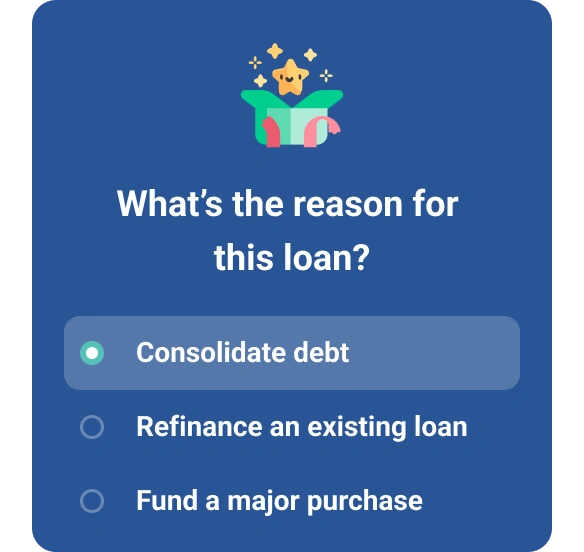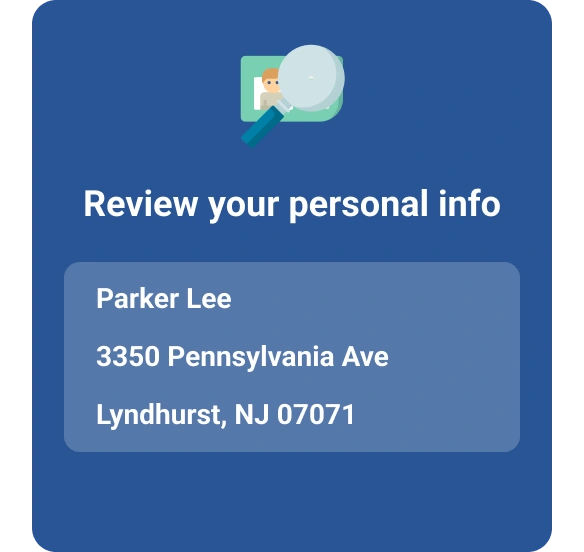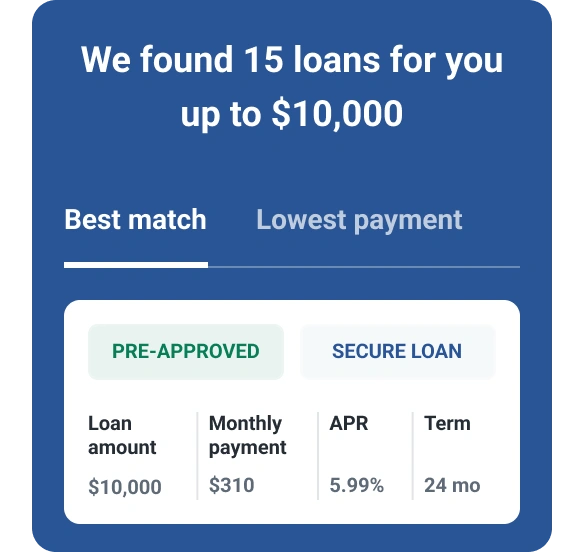How Will Rising Interest Rates Impact Personal Loans?
Quick Answer
With the Federal Reserve’s recent interest rate hike—and several more hikes expected in 2022—interest rates for new personal loans are likely to rise. Make smart money moves now to limit, or even eliminate, the impact of rising interest rates on your finances.

In March 2020, the Federal Reserve's Federal Open Market Committee (FOMC) responded to the COVID-19 pandemic by slashing interest rates to nearly 0%. The aim of the rate cut was to keep credit flowing and limit the economic bleeding from the pandemic.
Fast-forward two years to May 2022, the committee increased the federal funds interest rate—which many lenders use as a basis to set their rates—by 0.50%, after announcing a 0.25% increase in March. The latest rate hike is the biggest in 22 years and comes as a response to a rebounding economy and spiking inflation. The Fed also signals we could see more hikes in the future if inflation doesn't begin to fall.
While rising interest rates make borrowing more expensive, your payments won't change if you have a fixed-rate loan. Most personal loans have fixed interest rates, but rates could increase soon for new loans. Let's take a closer look at how climbing interest rates could impact personal loans and what steps you can take if you need to borrow money.
Could Rising Interest Rates Affect Existing Loans?
By definition, fixed-rate installment loans—including most personal loans—have an interest rate that doesn't change over the loan term. And since your loan payment is based in part on the interest rate, your monthly payment will also remain the same for the entire life of the loan.
When you lock in an interest rate for a personal loan, you safeguard your loan against future interest rate hikes by your lender. So if you have any existing fixed-rate personal loans, the Federal Reserve increasing their interest rate should have no bearing on your rate or affect your loan in any way.
While most personal loans have fixed interest rates, some lenders offer personal loans with variable rates. When the federal funds rate rises, the variable rate on your personal loan will likely follow suit. If you have a variable-rate personal loan, you may want to run the numbers and see if transferring your balance to a fixed-rate debt consolidation loan makes financial sense.
How Could Rising Interest Rates Affect New Loans?
While rising interest rates won't affect your current fixed-rate loans, they could impact the interest rates for new loans. If you're considering taking out a personal loan soon, you could save money on interest charges by locking in a lower rate now before more expected rate hikes kick in this year.
Many lenders set their prime rate—the rate they offer to the most qualified borrowers—based on the federal funds rate. Banks and financial institutions typically add 3% to the federal funds rate when setting the prime rate for their credit products. With the recent Fed announcement, the federal funds target rate range now sits at 0.75% to 1%. Accordingly, U.S. banks have announced prime rate increases to 4% from 3.5% before the hike, which could directly impact interest rates for new loans. If the Fed continues to raise rates, personal loan borrowers will likely see rates rise higher.
Steps to Take When Interest Rates Rise
If you're considering taking out a personal loan, financing a large purchase such as a car or home, or you're simply eyeing your credit card balances nervously, it may be wise to keep track of potential interest rate increases. Since the prime rate offered by lenders tends to follow the federal funds rate, you can expect interest rates on loans, credit cards and other credit products to rise if the Fed takes further measures to control inflation.
Here are a few tips for managing interest as rates continue to rise:
- Consider a debt consolidation loan. Interest rates for credit cards tend and rise when the Fed raises interest rates. If you have good credit, you may qualify for a debt consolidation loan at a lower rate than your credit card's annual percentage rate (APR). In this case, a debt consolidation loan could save you money on interest charges, lower your monthly payment and possibly help you pay off your debt sooner.
- Get a fixed-rate loan. Variable-rate loans may start with lower interest rates than fixed-rate loans, but they often increase to higher rates. You can insulate yourself from future rate hikes by locking in a fixed rate that will remain the same for the life of the loan.
- Make a large down payment. When you put down a substantial down payment on a home, auto or personal loan, you're simultaneously lowering your borrowing amount and your risk level for the lender. As such, you could receive a lower interest rate offer.
- Reduce your repayment term. The longer your repayment term, the more interest you'll pay. Additionally, longer repayment terms typically result in higher interest rates since your lender must wait longer to recoup their investment. Opting for the shortest repayment term with monthly payments you can afford may result in a lower interest rate and a shorter time frame to pay off the loan.
- Pay off credit card balances. If you have credit card debt, paying your bill in full by the due date each month will eliminate interest charges on your balance.
It's also wise to take steps to improve your credit, since lenders typically reserve the best interest rates for borrowers with good credit. Get access to your Experian credit report and FICO® ScoreΘ for free to see how you might look to a lender. You'll have a clearer picture of your credit health, and you'll be able to view specific score factors that are impacting your credit score.
Need a personal loan?
Whether you're looking to eliminate debt or access cash fast, compare personal loan offers matched to your credit profile.
Start now for freeAbout the author
Tim Maxwell is a former television news journalist turned personal finance writer and credit card expert with over two decades of media experience. His work has been published in Bankrate, Fox Business, Washington Post, USA Today, The Balance, MarketWatch and others. He is also the founder of the personal finance website Incomist.
Read more from Tim

